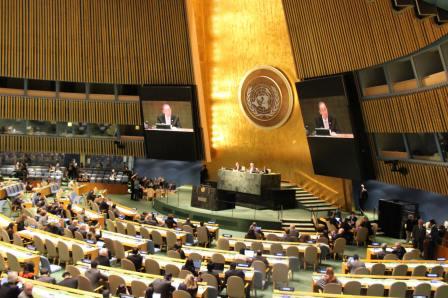 Information and Communication Technologies are essential for achieving 2030 Sustainable Development through commitment to the vision of the World Summit on the Information Society.
Information and Communication Technologies are essential for achieving 2030 Sustainable Development through commitment to the vision of the World Summit on the Information Society.
On 16th December, countries reaffirmed their commitment to utilizing Information and Communication Technologies (ICT) as an essential tool for achieving the new Sustainable Development Goals at a high-level meeting of the UN General Assembly. The General Assembly adopted the outcome document on the overall review of the implementation of the outcomes of the World Summit on the Information Society towards the end of a two-day review meeting of the past ten years.
The outcome document, in addressing a range of emerging challenges and opportunities, welcomes the remarkable evolution and spread of Information and Communication Technologies to almost every community in the world, enabling knowledge sharing, economic growth and empowering sustainable development.
The meeting convened by UN General Assembly President Mogens Lykketoft was attended by high level representatives from all Member and observer States and Representatives of all relevant stakeholders of the World Summit on the Information Society.
ICT for Development
“ICT has played an increasingly important role in promoting economic and social development, such as enhancing productivity, facilitating trade, creating quality jobs, providing ICT-based services such as e-health and e-learning, and improving governance,” said Mr. Lykketoft.
Bridging the Digital Divide
UN Secretary-General Ban Ki-moon said, “This High-Level review is timely coming just three months after the adoption of the 2030 Agenda for Sustainable Development. ICTs can be an engine for achieving the Sustainable Development Goals. They can power this global undertaking. Today, more than 80% of households in developed countries have internet access. Meanwhile, two out of three households in developing countries do not. Women are half the global population – yet 200 million fewer women than men have access to the Internet. We must bridge these divides,” said Mr. Ban.
This outcome document highlights the significant digital divides, which need to be addressed through strengthened enabling policy environments and international cooperation to improve affordability, access, education, capacity-building, multilingualism, cultural preservation, investment and appropriate financing.
Challenges and Gaps
Importantly, the outcome document addresses the new and emerging challenges, including cybercrimes, cyber-attacks, and the use of ICTs for terrorist purposes. In this regard, it recognizes the leading role for governments in cybersecurity matters relating to national security. It further recognizes the important role of international law, especially the UN Charter, in building confidence and security in the use of ICTs by States.
Internet Governance
The outcome document stresses the need to promote greater participation and engagement in Internet governance discussions that should involve governments, the private sector, civil society, international organizations, the technical and academic communities, and all other relevant stakeholders. In that light, the Internet Governance Forum (IGF) has played a role as a multi-stakeholder platform for discussion of Internet governance issues.
In a specific decision contained in the document, the General Assembly extends the IGF mandate for another 10 years, while recognizing that during this period, the IGF should continue to show progress on working modalities, and participation of relevant stakeholders from developing countries.
ICTs for Sustainable Development
Finally, in a key forward-looking decision of the outcome document, the UN Member States call for close alignment between the WSIS process and the 2030 Agenda for Sustainable Development, highlighting ICT’s cross-cutting contribution to the Sustainable Development Goals and poverty eradication.
“In 2015, we embarked on a journey – a journey of climate action, a journey of sustainability, a journey of prosperity for all the nations and communities sharing this one planet. ICTs and the Internet must help drive this journey,” said Mr. Ban.
As agreed by all UN Member States, the General Assembly will hold a High Level Meeting on the overall review of the implementation of WSIS outcomes in 2025.
For more information please see the website of the UN General Assembly High Level Meeting.




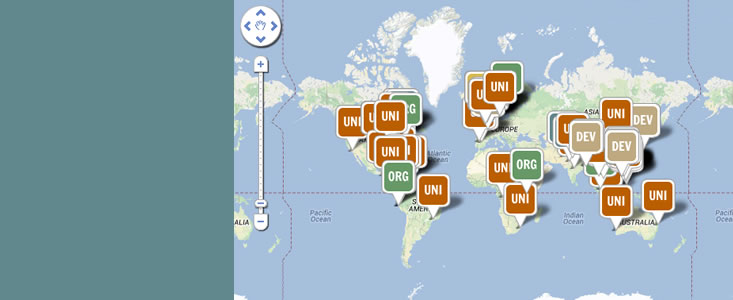
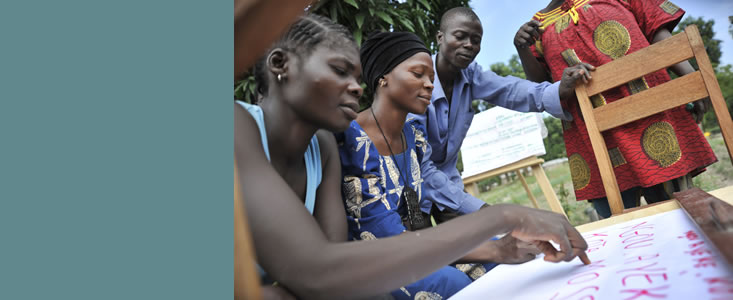
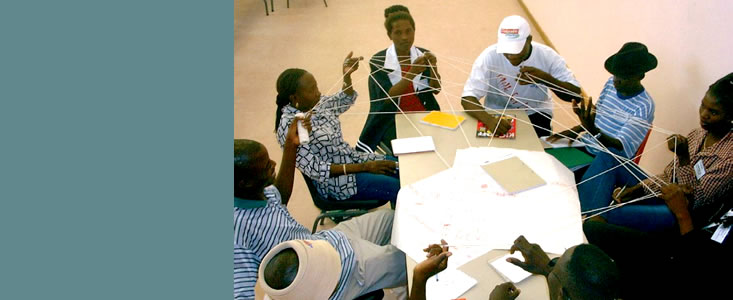
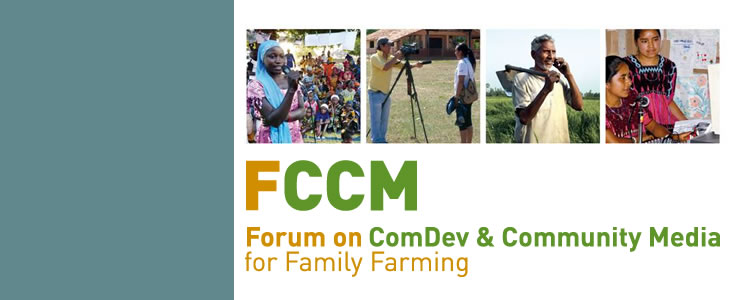
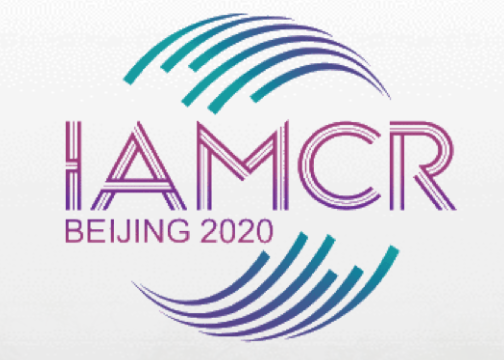 The International Association for Media and Communication Research (IAMCR) invites everyone to submit their abstracts and proposals for panels for the 2020 Congress of the Association with the theme, "Reimagining the Digital Future: Building Inclusiveness, Respect and Reciprocity" which will be held on 12 to 16 July 2020 at Tsinghua University in Beijing, China.
The International Association for Media and Communication Research (IAMCR) invites everyone to submit their abstracts and proposals for panels for the 2020 Congress of the Association with the theme, "Reimagining the Digital Future: Building Inclusiveness, Respect and Reciprocity" which will be held on 12 to 16 July 2020 at Tsinghua University in Beijing, China.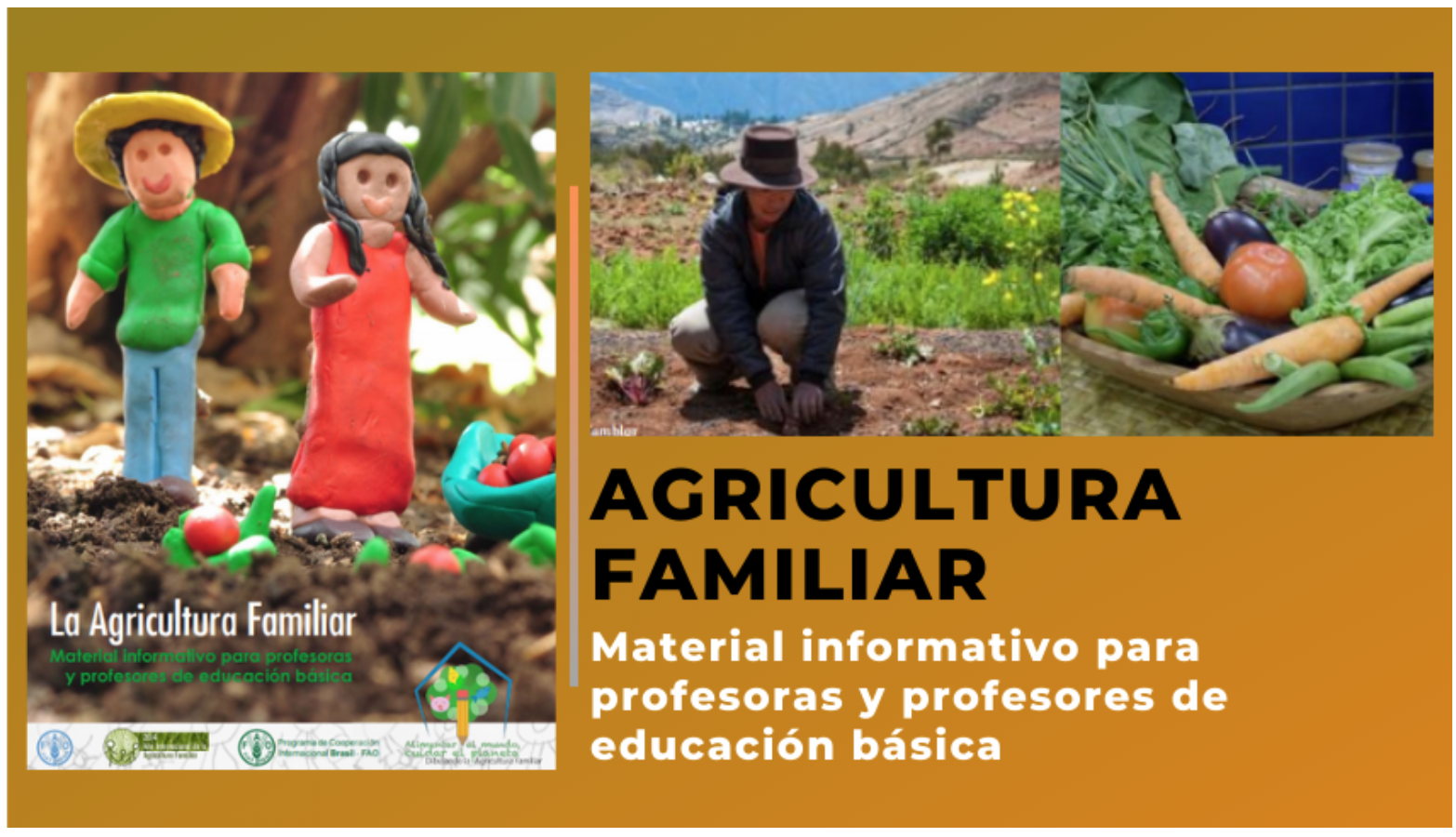 Information material on basic notions of Family Farming was published by the Food and Agriculture Organisation to those who are teaching basic education classes.
Information material on basic notions of Family Farming was published by the Food and Agriculture Organisation to those who are teaching basic education classes.  The organizers of the 2020 International Social and Behavior Change Communication (SBCC) Summit have announced its call for proposals/abstracts for next year's Summit.
The organizers of the 2020 International Social and Behavior Change Communication (SBCC) Summit have announced its call for proposals/abstracts for next year's Summit.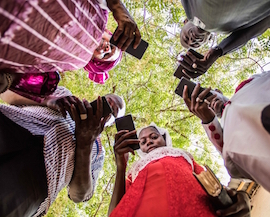 Many studies have noted the decreasing interest of the youth in agriculture. However, digital technologies can facilitate youth engagement in the sector to address unemployment and food insecurity.
Many studies have noted the decreasing interest of the youth in agriculture. However, digital technologies can facilitate youth engagement in the sector to address unemployment and food insecurity. A TV series using entertainment-education principles helps change farmers’ beliefs and pest management practices in Vietnam.
A TV series using entertainment-education principles helps change farmers’ beliefs and pest management practices in Vietnam. In the University of Queensland, Master students in
In the University of Queensland, Master students in 
 Tsunamis are frequent in Indonesia and more than 35% of them are deadly. The December 26, 2004 tsunami claimed 178,000 lives in the island of Sumatra. In hindsight, the weak tsunami resilience of the people contributed to the terrible catastrophe. Many people were unaware, unprepared, and lacked knowledge about tsunamis. The mass media reported on the December 26 tragic consequences but did not provide substantial information about tsunamis (Morin et al., 2008).
Tsunamis are frequent in Indonesia and more than 35% of them are deadly. The December 26, 2004 tsunami claimed 178,000 lives in the island of Sumatra. In hindsight, the weak tsunami resilience of the people contributed to the terrible catastrophe. Many people were unaware, unprepared, and lacked knowledge about tsunamis. The mass media reported on the December 26 tragic consequences but did not provide substantial information about tsunamis (Morin et al., 2008).